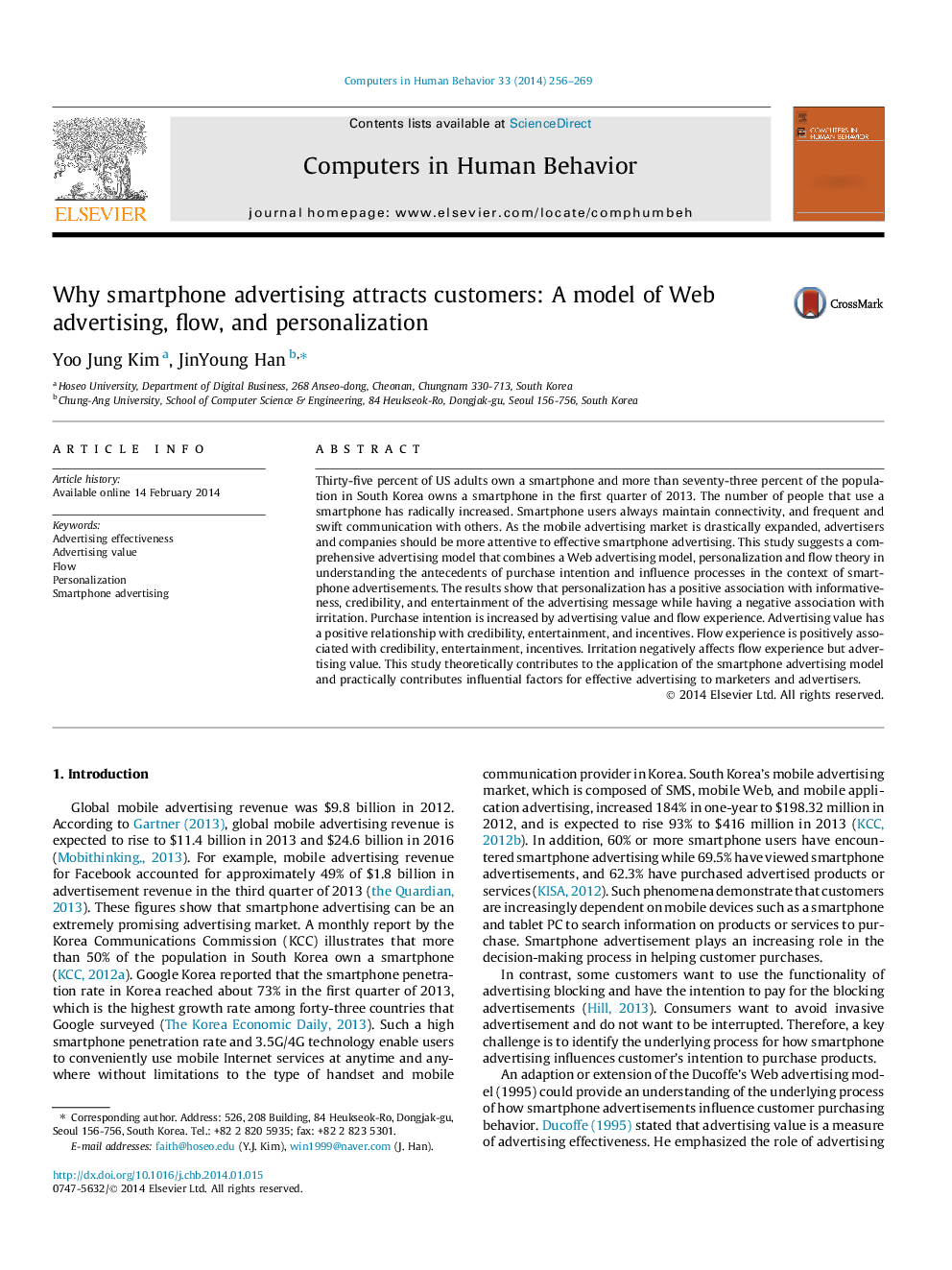| Article ID | Journal | Published Year | Pages | File Type |
|---|---|---|---|---|
| 6839248 | Computers in Human Behavior | 2014 | 14 Pages |
Abstract
Thirty-five percent of US adults own a smartphone and more than seventy-three percent of the population in South Korea owns a smartphone in the first quarter of 2013. The number of people that use a smartphone has radically increased. Smartphone users always maintain connectivity, and frequent and swift communication with others. As the mobile advertising market is drastically expanded, advertisers and companies should be more attentive to effective smartphone advertising. This study suggests a comprehensive advertising model that combines a Web advertising model, personalization and flow theory in understanding the antecedents of purchase intention and influence processes in the context of smartphone advertisements. The results show that personalization has a positive association with informativeness, credibility, and entertainment of the advertising message while having a negative association with irritation. Purchase intention is increased by advertising value and flow experience. Advertising value has a positive relationship with credibility, entertainment, and incentives. Flow experience is positively associated with credibility, entertainment, incentives. Irritation negatively affects flow experience but advertising value. This study theoretically contributes to the application of the smartphone advertising model and practically contributes influential factors for effective advertising to marketers and advertisers.
Related Topics
Physical Sciences and Engineering
Computer Science
Computer Science Applications
Authors
Yoo Jung Kim, JinYoung Han,
